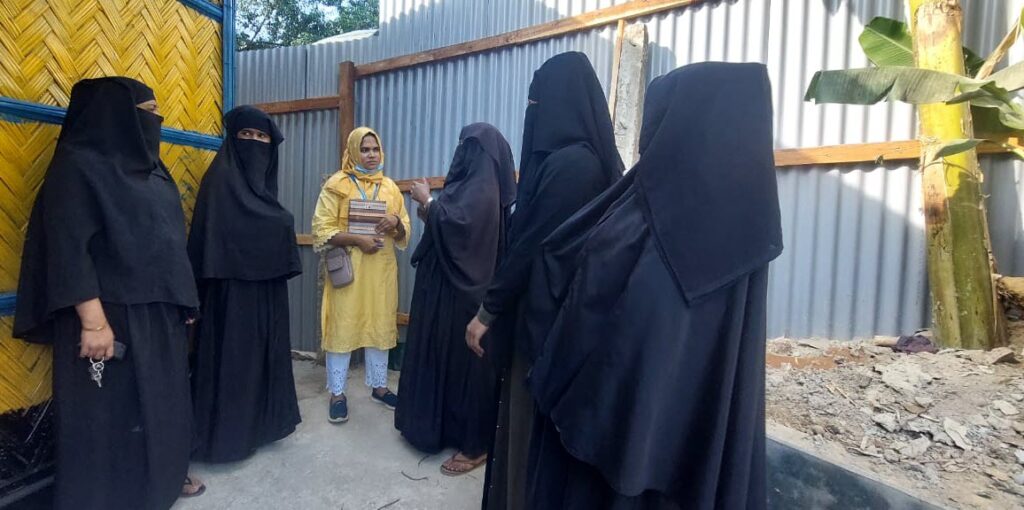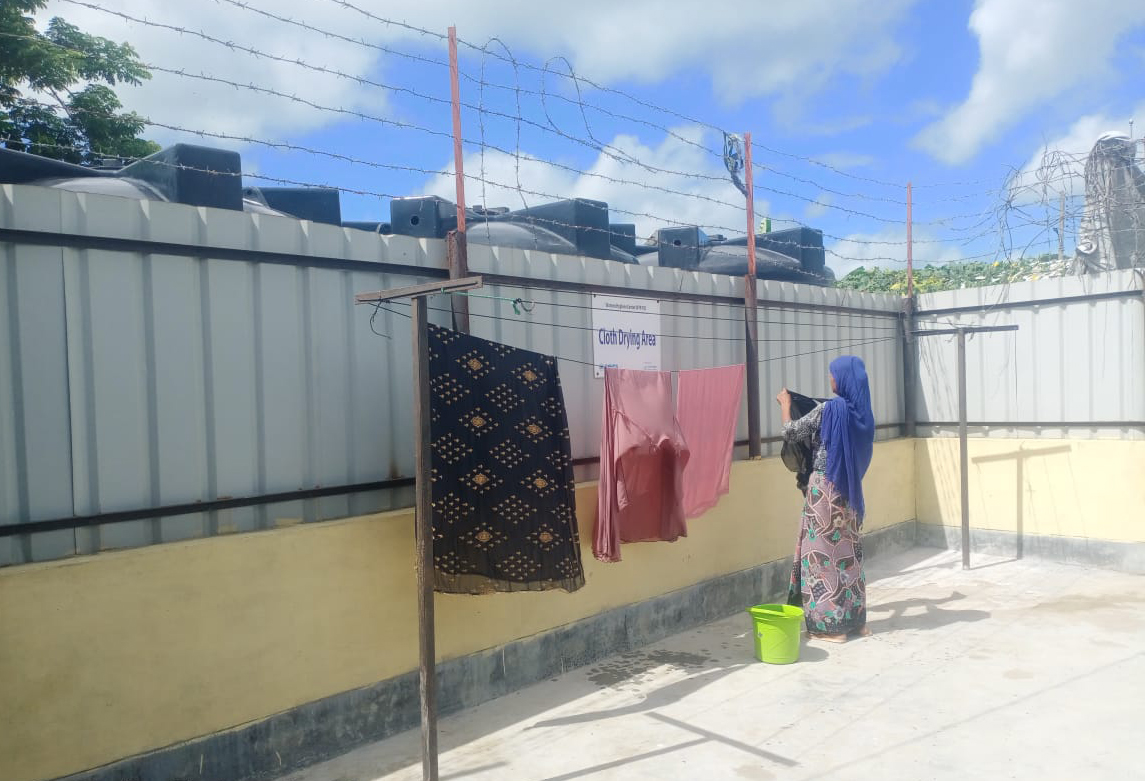Imagine you are fleeing persecution and even death, crossing the border into a new country where you may never see your home again. Suddenly you are living in makeshift quarters that are barely able to meet your basic needs, especially when it comes to finding a safe place for the most basic of bodily functions.
Close to one million Rohingya refugees escaping ethnic and religious persecution in Myanmar are currently living in the largest refugee camp in the world, near Cox’s Bazar in eastern Bangladesh. The sanitation facilities are communal rather than in private quarters, a challenge for anyone, but especially women and girls. Culturally, using latrines alongside men can be so overwhelming and unsafe that women create alternatives in their homes, undermining the sanitation collection infrastructure and risking the spread of disease.
The Rohingya refugee crisis is tremendously complicated with no easy solution. But there are ways to take small steps to improve the daily lives for people living in one of the most difficult, unendingly temporary situations in the world.
At Gates Philanthropy Partners (GPP), we aim to support women to find dignity in difficult situations. That’s why we are investing in the United Nations High Commissioner for Refugees (UNHCR) to help implement a multi-dimensional program focused on supporting inclusive and environmentally sustainable sanitation services for the Rohingya refugees in Cox’s Bazar.
The Bill & Melinda Gates Foundation, through the Emergency Response Team, is supporting UNHCR to redesign and implement more sustainable and environmentally appropriate sanitation infrastructure to benefit Rohingya refugees in UNCHR-managed camps. This is critical given the uncertain long-term fate of these populations and the need to invest in dignified and durable services. The centerpiece of the initial project was to support the upgrading and operationalization of two large-scale fecal sludge treatment plants to provide sustainable and appropriate sludge management that better meets the sanitation needs of the camps.
Through the generosity of a philanthropist passionate about aiding refugees, GPP is now collaborating with the foundation to expand UNHCR’s programmatic scope, building off the initial investment to address identified gaps.
One of the major objectives is to address the gender challenges. To persuade women and girls to use the communal lavatories, they are building women’s hygiene centers farther away from the men’s facilities. These centers, designed with input from the community, will include spaces for bathing and doing laundry in addition to toilets and will serve as a place where women can spend more time together. These interventions are intended to address cultural and security considerations raised specifically by women and girls.

The project also continues to invest in sustainable systems to collect, transport, and treat solid waste. This includes creating blocks of fertilizer that the refugees can use in their private gardens. UNHCR has been working with the Bangladesh Agricultural University on testing to ensure that the use of organic fertilizer is safe to grow vegetables and other nutritious crops within the refugee camps.
Above all, UNHCR will document the learnings and impact from this work and share best practices so they can influence policies in other camps elsewhere. Safe sanitation is essential to a healthy and sustainable future for all developing economies.
Gates Philanthropy Partners works directly with philanthropists to enable them to invest alongside the Gates Foundation. If you are interested in supporting women and girls to find dignity in difficult situations, join us in accelerating innovations for safe sanitation technology and service delivery. Investing in such basic needs is crucial to the health and dignity of all people, especially women and girls, so they and future generations can thrive.

